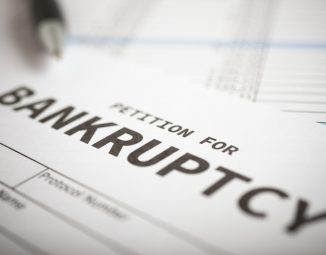The Heavy Burden of Sustaining an Administrative Claim Just Got A Bit Lighter In Delaware Bankruptcy Court
Recently-appointed Delaware Bankruptcy Judge Craig T. Goldblatt, in the case of oil and gas driller MTE Holdings LLC, ruled that to establish an administrative claim entitled to priority payment, a creditor is not required to show that the goods or services resulted in an actual increase in the debtor’s profits or value; rather that it is sufficient if the debtor reasonably believed that they would enhance revenue or the overall value of the business.¹
The Underlying Facts.
The debtor’s business included drilling for oil and gas which generates, as a byproduct, significant amounts of toxic wastewater that needs to be disposed of in compliance with applicable environmental regulations. Prior to its bankruptcy, the debtor had initiated a pipeline project to carry wastewater from its various field wells to a central disposal facility. The capacity of this pipeline exceeded the debtor’s production of wastewater and the debtor envisioned that it could generate additional revenue by charging other oil and gas exploration and production companies for wastewater disposal. The debtor engaged Gray Surface to provide consulting and advisory services on rights of way, easements, and service use agreements for the pipeline project.
Following the filing of bankruptcy, the debtor’s prepetition secured lenders announced that they did not support the wastewater disposal expansion project and would not permit their cash collateral to be used on it.² Notwithstanding the lenders’ decision, the debtor wanted to continue the project and assured Gray Surface that its bills would be paid through a non-debtor affiliated company controlled by the debtor’s principal. However, when the affiliate failed to pay as promised, Gray Surface filed a motion seeking the allowance and immediate payment of an administrative expense for the unpaid invoices.
Allowance of Administrative Expense Claims in Bankruptcy.
Administrative expense claims, which enjoy priority for payment, are allowed for “the actual, necessary costs and expenses of preserving the estate.”³ Allowed administrative expense claims must be paid in full before payment is made to lower classifications such as general unsecured claims. Further, a chapter 11 debtor cannot emerge from bankruptcy without paying the holders of allowed administrative claims in full on the effective date of the plan or obtaining their consent to different treatment.
In the Third Circuit, a successful administrative claimant must show that “(1) there was a post-petition transaction between the claimant and the estate and (2) those expenses yielded a benefit to the estate.”4
In the MTE Holdings case, there was no dispute about the amounts of the invoices or that Gray Surface provided the services related to its administrative claim. Rather, the central dispute before the Court was whether the “benefit to the estate” for the services provided on the wastewater disposal project were too speculative to warrant administrative expense status.
How is Benefit to the Estate Measured?
The Delaware Bankruptcy Court observed that Third Circuit caselaw addressing the requirement of a “benefit to the estate” for the allowance of an administrative expense claim reflects two competing themes. On one hand, a creditor must “carry the heavy burden” of showing that the claim is entitled to priority administrative expense treatment. On the other, however, courts also recognize that it is necessary to extend administrative claim status to post-petition creditors to encourage them to continue to do business with the debtor. Absent such priority, it would be unlikely that the debtor could retain its work force or procure goods and services essential for its continued operations or an orderly wind down and liquidation.
In opposing Gray Surface’s administrative claim motion, the debtor argued that to “carry its heavy burden” to qualify for administrative expense treatment, Gray Surface needed to prove that the bankruptcy estate obtained demonstrable “increases in profit, revenue or competitive position” as a result of the services provided.
Notwithstanding the language of a “heavy burden” to show a “benefit to the estate,” the Bankruptcy Court rejected this argument, concluding that applicable caselaw does not impose a requirement upon a non-insider third party that provides goods or services to a debtor in possession on ordinary commercial terms to prove that receipt of those goods or services led directly to increased profits or valuation. The record before the Court established that the debtor retained Gray Surface to provide services related to the wastewater disposal project because it “believed that the project would generate incremental revenue or enhance the value of their business” and this, concluded the Court, is all that is required.
An ordinary commercial vendor that provides post-petition goods or services at standard commercial rates and terms “does not become a guarantor of the success of the venture.” If the law were otherwise, ordinary commercial vendors would be compelled to charge debtors in possession higher rates to compensate for the risk that their goods or services were utilized in ventures that were ultimately unsuccessful, which would frustrate rather than advance the legislative objective to facilitate reorganization of troubled businesses.
This opinion provides an arm’s length vendor dealing post-petition with a debtor on standard commercial terms with a strong argument that the “benefit to the estate” requirement establishing an administrative priority claim is satisfied merely upon a showing that the debtor reasonably believed that the goods or services provided would enhance revenue or increase business value rather than the more onerous standard that the transaction actually increased profits or value.
[1] In re MTE Holdings LLC, et al. Case No. 19-12269 (CTG) (Bankr. D.Del.)
[2] Secured lenders are entitled to adequate protection against the diminution of the value of their collateral, including their cash collateral, and lenders will often enter into series of court-approved stipulations that permit debtors to use that cash collateral in accordance with agreed budgets.
[3] 11 U.S.C. § 503(b)(1)(A).
[4] In re Energy Future Holdings Corp., 990 F.3d 728, 741 (3d Cir. 2021)
The information contained in this publication should not be construed as legal advice, is not a substitute for legal counsel, and should not be relied on as such. For legal advice or answers to specific questions, please contact one of our attorneys.





